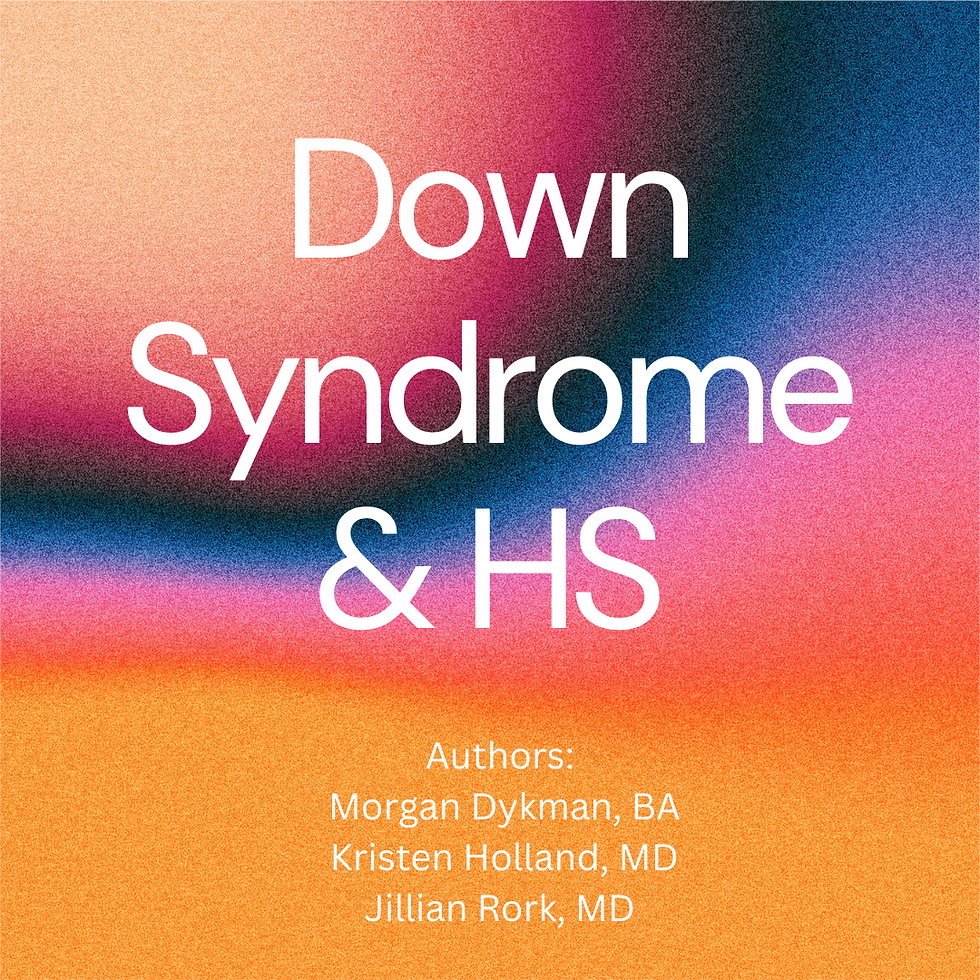Autoimmune vs. Autoinflammatory What Category is HS in?
- Denise Panter-Fixsen

- Nov 13, 2020
- 3 min read
Updated: Jul 9, 2021
There has been much discussion about whether Hidradenitis Suppurativa is autoimmune or autoinflammatory. HS is considered an inflammatory follicular occlusion illness or more newly classified as an immune-mediated inflammatory illness.

Both start with the prefix “auto” to define a pathological process directed against self. Both are characterized by activation of the immune system, seemingly without cause. Immune-mediated inflammatory disease (IMID) are a group of conditions or diseases that lack a definitive etiology. They share common inflammatory pathways leading to inflammation, and which may result from, or be triggered by a dysregulation and inflammatory cytokines is central to their pathogenesis.
There are not many diagnostic tools for autoinflammatory other than elevated inflammation markers such as high white blood cell count, C Reactive Protein, etc.
Unlike autoimmune, where ANA (antinuclear antibodies) and antineutrophil are typically present, these antibodies are usually not present in blood work with autoinflammatory illnesses (unless you have an autoimmune illness along with HS). ANA can also be triggered by drug exposures and chronic infections. Additionally, ANA may be detected in subjects with no definable illness. Although not common, those with HS may still at times show ANA in their bloodwork and not have any other illness.
The spectrum of autoinflammatory disorders continues to expand and some autoimmune illnesses are being reclassified to autoinflammatory or more newly classified as an immune-mediated inflammatory illness.
Autoinflammatory
Autoinflammatory diseases or immune-mediated inflammatory illnesses cause systemic inflammation due to problems in the “innate immune system.” During an autoinflammatory or immune-mediated inflammatory illness flare constant inflammation seems to occur automatically or “on its own” (instead of in response to invading germs or infection) and may cause systematic symptoms such as low grade fever, flu-like symptoms, fatigue and joint pain.
This auto-inflammation involves the nonspecific “innate immune system” and occurs periodically in some people or chronically (constantly). This can cause a disease flare with typical symptoms including fever, skin lesions, joint/muscle swelling and pain, body aches, gastrointestinal distress, overall malaise, and fatigue.
Autoimmune
Autoimmune diseases involve the “acquired” or “adaptive” immune system, marked by the formation of antibodies that are mistakenly directed against specific parts of the body, leading the body to attack itself tissues, joints, muscles, organs etc., as if it were fighting off invading pathogens.
Both can show increased production of inflammatory cytokines (for example), however, auto-inflammatory illnesses (unlike classic autoimmune diseases) typically shows little to no evidence of specific adaptive immunity such as circulating autoantibodies and autoreactive T-cells.
How is HS Classified?
There is no strong evidence or long-standing research supporting HS as an autoimmune disease and the past several years of research suggest HS as autoinflammatory affecting our innate immune system or more newly classified as an immune-mediated inflammatory illness.
Officially and technically it has not been classified as an autoimmune disease, but patients and doctors alike commonly use the “autoimmune” term as shorthand, which causes confusion and often leads to a debate between the two terms.
“Autoimmune” has technical requirements medically that HS does not meet. Currently HS is considered an inflammatory follicular occlusion illness, also referred to as an immune-mediated inflammatory illness.
Easiest way to remember the difference: Autoimmune attacks and autoinflammatory overreacts.
Explore research on this topic HERE.
Read other articles here:
Content in this article is not intended to be a substitute for professional medical advice, diagnosis, or treatment. Always seek the advice of your physician or other qualified health provider with any questions you may have regarding a medical condition. Never disregard professional medical advice or delay seeking treatment because of something you have read on this website.
Written by Denise Panter-Fixsen
Edited by Brindley Kons



